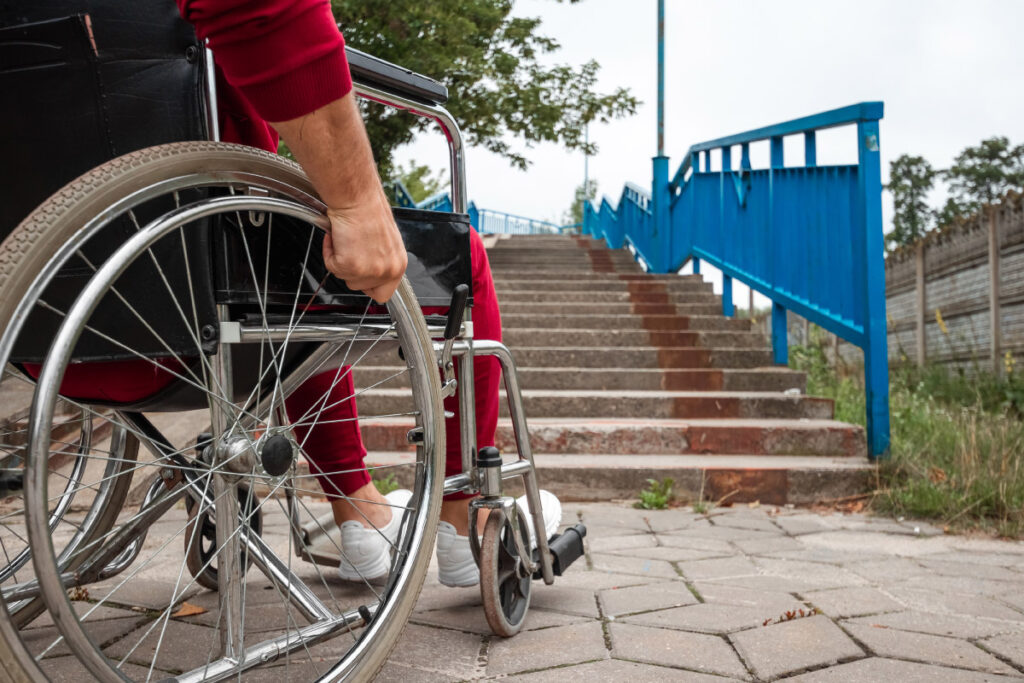
Many healthcare facilities are still inaccessible to those with disabilities.
We need to change the current unacceptable healthcare disparities
Two of my passionate causes are accessibility and inclusion. Every child deserves equal access to high-quality, compassionate healthcare. Yet for the 1 in 6 youth living with a neurodevelopmental disability (NDD) like autism, ADHD or intellectual disability, attaining appropriate medical care is often an immense challenge. Compared to their neurotypical peers, these children and adolescents face significant and unacceptable health disparities.
The statistics are staggering. Children with NDDs receive fewer preventative care visits and routine immunizations. The rate of unmet medical needs due to postponed appointments or unfilled prescriptions is higher for these individuals. When they do access the healthcare system, they are more likely to endure adverse events like traumatic restraint, seclusion or injury during encounters. Tragically, individuals with NDDs also have higher mortality rates, frequently from potentially avoidable causes.
Systemic Ableism Creating Barriers
These poor outcomes don’t arise by chance, but are perpetuated by deep-rooted systemic barriers and discrimination faced by the disability community. Ableism – the prejudiced assumption that disabled individuals are inferior – pervades our healthcare institutions through inaccessible buildings, untrained staff, and outright denied care. Failures to provide reasonable accommodations like communication supports or sensory-friendly environments create hostile experiences driving many families away. Shockingly, having a NDD increases one’s chances of being a victim of healthcare hostility like restraint or maltreatment.
Intersecting Marginalization Amplifies Inequity
Worse still, having intersecting marginalized identities like being a racial minority or LGBTQ+ amplifies these barriers exponentially. The compounding effects of ableism, racism, and other biases create a “pedigree of disadvantage” for many neurodivergent youth trying to get their medical needs met.
Ableist Norms Pervading Healthcare Culture
At its core, our healthcare system was not designed to serve neurodivergent people in an affirming, individualized way. Rooted in an outdated medical model, disability is often treated as a problem to fix rather than a core part of human diversity to be celebrated and accommodated. Hospitals and clinics routinely exclude disabled voices in leadership, policymaking and even research on NDD patient experiences. This has enabled the systemic perpetuation of inequitable, one-size-fits-all care models unfit for this population’s needs.
While legal protections against disability discrimination exist, mere policies are insufficient to address the endemic culture of ableism robbing so many youth of their basic right to accessible healthcare. What’s required is a fundamental shift in the approach healthcare organizations take to including and empowering neurodivergent patients and families.
The SAFE Initiative’s Pioneering Path Forward
In the fight for disability justice, transformative change must be led by those most impacted. The Supporting Access for Everyone (SAFE) Initiative’s new consensus statement charts a pioneering path forward by centering the lived experiences of NDD communities themselves. By uplifting their vital perspectives in congruence with interprofessional clinical experts, SAFE provides a roadmap for how healthcare systems can begin dismantling ableist norms and achieving true equity. The time is now to heed this call to action.
